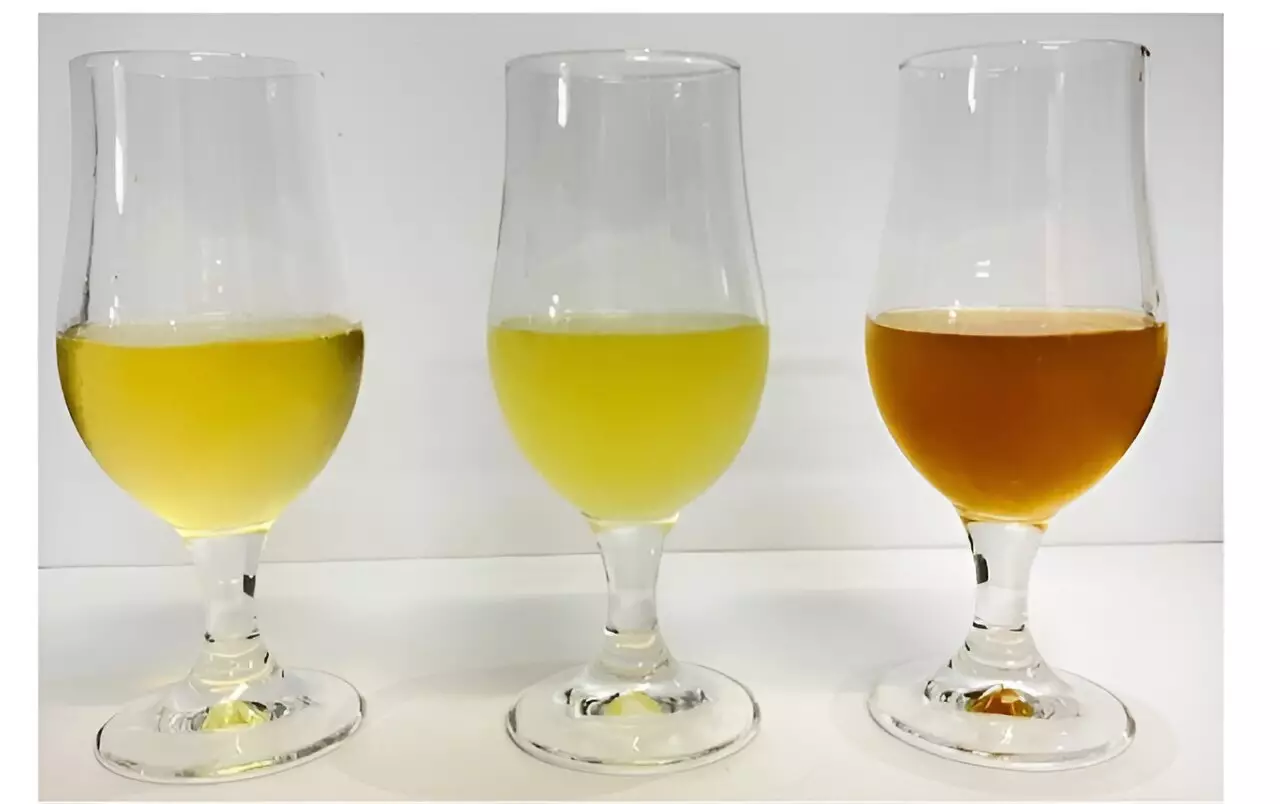Kombucha, a bubbly concoction rich in tangy flavors, has captured the attention of health enthusiasts and beverage consumers alike. Traditionally brewed from sweetened tea fermented with a symbiotic culture of bacteria and yeast (often referred to as SCOBY), this drink is not only celebrated for its effervescence but also for its potential health benefits, including antioxidant and anti-inflammatory properties. However, as the beverage market evolves, there’s a growing trend among brewers to explore alternatives to kombucha by fermenting various plant-based liquids. This shift opens up a world of possibilities for flavor and nutritional content that may appeal to diverse consumer preferences.
Recent research published in the journal ACS Agricultural Science & Technology shed light on this innovative direction, specifically comparing the biochemical properties and flavor profiles of kombucha with alternatives derived from apple and passion fruit juices. The study, conducted by Socorro Vanesca, Frota Gaban, and their research team, carefully examined these beverages to evaluate their viability as kombucha substitutes. What they discovered was striking: the apple juice fermentation not only retained high levels of bioactive compounds but also garnered high ratings in taste tests, marking it as a formidable contender in the realm of fermented drinks.
The research findings revealed that the apple-based beverage boasted significant concentrations of flavonoids—powerful antioxidants that contribute to various health benefits. In fact, apple juice fermentation led to the highest levels of these beneficial compounds when compared to kombucha and passion fruit drinks. Additionally, both the kombucha and apple beverages contained notable amounts of phenolic compounds, outpacing the passion fruit option. All three drinks, interestingly, showcased similar levels of anthocyanins, the pigments responsible for the vibrant colors seen in many fruits. This suggests that the nutritional benefits commonly associated with kombucha can also be found in other fermented beverages, broadening the scope of options available to consumers seeking health-conscious choices.
When it comes to taste, the study included a panel of 12 volunteer taste testers who provided feedback on various sensory aspects of each beverage. The apple drink was described as vibrant and amber-colored, presenting a strong, fruity aroma that set it apart from its kombucha and passion fruit counterparts. While the kombucha retained a golden hue and a milder smell, the passion fruit beverage exhibited more bitterness, which impacted its overall acceptance among the testers. Remarkably, both the apple and kombucha beverages received equal preferences, showcasing the appeal of these options over the more bitter passion fruit.
With such promising results in both biochemical composition and taste evaluations, it seems the era of kombucha may be ripe for evolution. As researchers continue to investigate the benefits and flavors of fruit-based ferments, the beverage landscape will likely expand, catering to a wider array of flavor profiles and health-conscious consumers. The exploration of new fermented beverages not only diversifies our palate but also emphasizes the importance of understanding our food sources’ nutritional benefits. The realm of fermented drinks is far from reaching its peak; instead, it’s just beginning to uncover its true potential.

